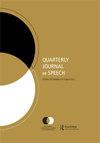社论声明
IF 1.3
2区 文学
Q2 COMMUNICATION
引用次数: 0
摘要
为《言语季刊》的内容和方向设定愿景意味着要解决我们学科中与白人至上、肤色歧视、厌女症、阶级地位、能力、以美国为中心的思想、反伊斯兰情绪、反犹太主义、反黑人、人类中心主义、持续的殖民主义和多种形式的种族中心主义有关的重要问题。呼吁在我们的学科中增加边缘化观点的代表性已经持续了几十年,但近年来已经达到了关键时刻。关于NCA杰出学者的争议只是众多其他例子中的一个,这些例子让我们领域的许多人感到被NCA等组织和QJS等期刊剥夺了权利。一个恰当的例子是:最近在qjs、CC/CS和其他学科期刊上的论坛和对话表明,对解决我们当前背景和文化环境的修辞和批判性学术的深刻、迫切的需求和渴望。这些讨论仅仅代表了修辞学研究中关于排斥、边缘化和微侵犯的经历的一些正在进行的对话。我们设想qjs将成为一个学术论坛,作者在这里讨论广泛的社会和政治问题,以及它们如何在修辞/语言中、通过或超越修辞/语言发挥作用。我们面临着持续的残疾歧视、环境灾难、战争和对不同民族的未遂/成功灭绝、全球化/资本主义、气候变化/粮食不安全/毒素的缓慢暴力、反黑人、反土著、反拉丁裔和反亚洲人的种族主义、白人至上主义和民族主义的兴起、问题严重的移民政策和仇外心理、对酷儿和性别不符合人群的压迫、土著民族和文化/语言的抹除、反伊斯兰和反巴勒斯坦的情绪和暴力,以及许多其他社会正义问题。虽然通常关注方法、理论和/或包容性的修辞学主题仍然适合本刊,但我们特别寻求涉及超出本刊传统范围的问题和背景的投稿,特别是超越美国对世界的理解,特别是以反压迫研究框架的形式。我们希望QJS作为一份期刊能够讨论上述问题,同时欢迎和鼓励全球南方的国家和身份认同、非殖民化、非殖民化、定居者殖民主义、土著、批判性种族研究、#黑人的生命也很重要、#我也是、白人、性别问题、生态文化修辞、能力研究、环境正义以及相关的理论和主题。我们还希望鼓励挑战霸权和压迫的形式,特别是在学术研究和写作方面。本文章由计算机程序翻译,如有差异,请以英文原文为准。
Editorial Statement
Setting a vision for the Quarterly Journal of Speech’s content and direction means addressing the important problems in our discipline related to white supremacy, colorism, misogyny, class standing, ability, U.S.-centered thinking, anti-Islamic sentiment, anti-Semitism, antiBlackness, anthropocentrism, ongoing colonialisms, and many forms of ethnocentrism. Calls for greater representation of marginalized perspectives in our discipline have persisted for decades, but have reached critical junctures in recent years. The controversy over NCA’s Distinguished Scholars is but one instance among numerous others that have left many folks in our field feeling disenfranchised by organizations such as NCA and journals such as QJS. Case in point: recent forums and conversations inQJS, CC/CS, and other disciplinary journals indicate a deep, urgent need and hunger for rhetorical and critical scholarship that address our current contexts and cultural milieu. These discussions represent just a few of the ongoing conversations about experiences of exclusion, marginalization, and microaggressions in rhetorical studies. We envision then, thatQJS will be a scholarly forum where authors address a wide range of social and political issues and how they function within, through, and beyond rhetoric/ language. We face persistent ableism, environmental catastrophes, wars and attempted/successful exterminations of various peoples, globalization/capitalism, the slow violence of climate change/food insecurity/toxins, anti-Black, anti-Indigenous, anti-Latinx, and antiAsian racism, the rise of white supremacy and nationalism, deeply problematic immigration policies and xenophobia, oppression of queer and gender non-conforming folks, erasure of Indigenous peoples and cultures/languages, anti-Islamic and anti-Palestine sentiments and violence, as well as many other social justice issues. While topics that generally focus on rhetoric in method, theory, and/or inclusion continue to be appropriate for this journal, we especially seek submissions that engage matters and contexts that go beyond the traditional scope of this journal, particularly beyond U.S. American understandings of the world, and especially in the form of anti-oppression research frameworks. We hope that QJS as a journal will address the issues listed above, along with nationand identitymaking in the Global South, decoloniality, decolonization, settler colonialism, Indigeneity, critical race studies, #BlackLivesMatter, #MeToo, whiteness, gender troubles, ecocultural rhetoric, ability studies, environmental (in)justices, and related theories and themes are welcomed and encouraged. We also want to encourage forms that challenge hegemonies and oppressions, particularly in academic research and writing.
求助全文
通过发布文献求助,成功后即可免费获取论文全文。
去求助
来源期刊

Quarterly Journal of Speech
COMMUNICATION-
CiteScore
1.80
自引率
36.40%
发文量
39
期刊介绍:
The Quarterly Journal of Speech (QJS) publishes articles and book reviews of interest to those who take a rhetorical perspective on the texts, discourses, and cultural practices by which public beliefs and identities are constituted, empowered, and enacted. Rhetorical scholarship now cuts across many different intellectual, disciplinary, and political vectors, and QJS seeks to honor and address the interanimating effects of such differences. No single project, whether modern or postmodern in its orientation, or local, national, or global in its scope, can suffice as the sole locus of rhetorical practice, knowledge and understanding.
 求助内容:
求助内容: 应助结果提醒方式:
应助结果提醒方式:


